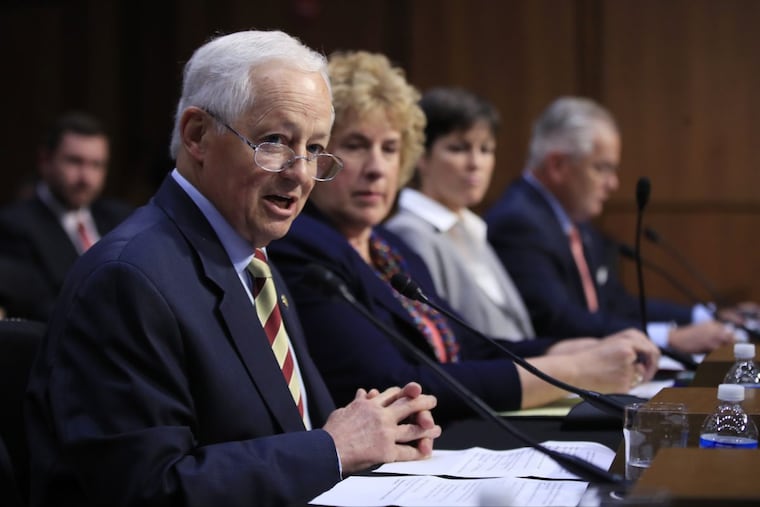Trump wants to sell health insurance across state lines. Why that's a bad idea
Patients would be forced to appeal to a distant state or a federal agency when they have coverage issues.

In a result of the U.S. Senate's failure to pass the Graham-Cassidy attempt to repeal and replace the Affordable Care Act, President Trump announced that he is issuing an executive order allowing the sale of health insurance across state lines. It's unclear whether he has the authority to do this, but this has long been proposed as a way to lower premiums. We will get to why the risks of this idea far outweigh benefits, but first, let's talk health insurance.
There are several general categories, starting with government-run programs. Medicare is federally administered and covers seniors and the disabled. The poor, including children, and low-income seniors in nursing homes are covered by Medicaid, funded by federal and state government.
As for private insurance, large employers with 500 or more employees are typically self-funded, which means they pay costs out of their own funds and hire a company to handle the claims. Individuals and small employers buy actual insurance policies from insurers who price premiums to cover expected costs plus administrative overhead and profit. Affordable Care Act (Obamacare) exchanges sell commercial policies, which have to follow the rules set by the federal government. Some families buy their insurance directly from the company.
State insurance departments are the watchdogs over insurers that sell policies to small businesses and individuals. They make sure people aren't cheated, enforce state coverage laws, make certain insurers offer a complete network of providers, and don't avoid sicker or higher-risk people. Large, self-funded plans are generally exempt from these state laws.
Insurance companies have always been allowed to sell their policies in different states — they just need to comply with each state's laws. The president's proposal would short-circuit this oversight so that only the state where the company lives would have jurisdiction.
That's the key issue. Patients would be forced to appeal to a distant state or a federal agency when they have coverage issues. Companies that play by the local state's rules — especially states with additional coverage requirements — would be at a competitive disadvantage.
We've seen this all before. At one time, no credit card company could charge an interest rate higher than the borrower's home state would allow. In 1978, the Supreme Court decided that the laws of the card issuer's state would apply, spurring a few states to impose terms friendlier to businesses than consumers. This is why you send your credit card payment to South Dakota, Nevada or Delaware.
If unfettered interstate sale of health policies is allowed, it's fairly certain that some states will weaken their health insurance regulations to attract new business, starting a race to the bottom.
Obamacare already allows states to join together in compacts to allow companies to sell their policies across borders, but state insurance commissioners still regulate the insurers. It's also ironic that politicians who tout states as the laboratories of democracy should want to deny them the power to regulate health insurance sold within their borders. Allowing the purchase of health insurance across state lines is no solution for the high cost of health care.